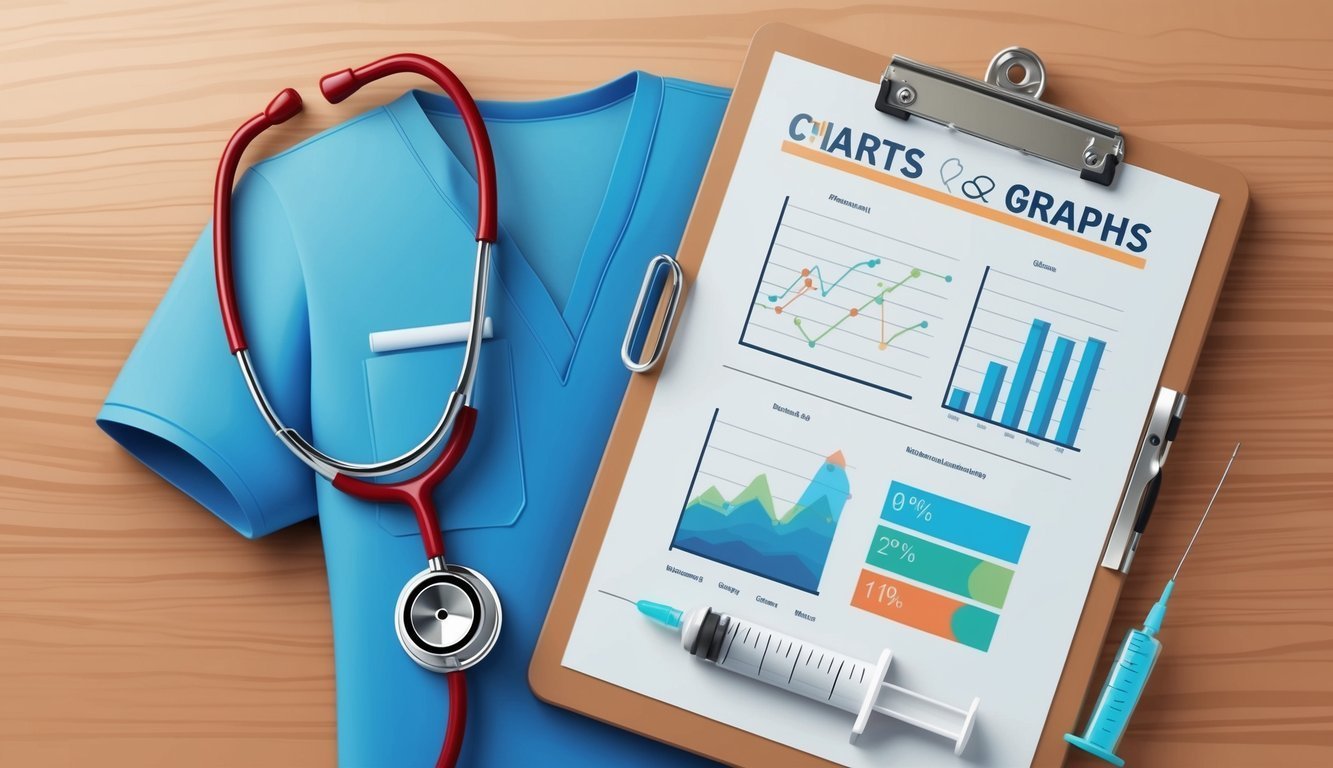In today’s fast-paced world, the healthcare sector is expanding at an unprecedented rate, making it a prime area for career opportunities. The healthcare careers list reveals a diverse range of job roles that not only offer competitive salaries but also provide the rewarding experience of making a difference in people’s lives.
Whether you are drawn to direct patient care or prefer administrative roles, there is a path suited to your skills and interests.
As you consider your options, keep in mind that many healthcare careers are associated with significant job growth, especially in fields such as nursing, medical technology, and therapy professions.
These roles often require specific educational backgrounds and training, but they offer stability and opportunities for advancement.
For example, positions like physician assistants and nurse practitioners are in high demand, with projections indicating strong growth for the next decade.
Navigating your career path in healthcare can be overwhelming, but understanding the benefits and requirements of each role can empower you to make informed decisions about your future.
Resources like Nurse.org and Mayo Clinic College of Medicine provide valuable insights into various healthcare professions, helping you align your goals with the right career choice.
Exploring Healthcare Professions
Healthcare professions encompass a wide range of roles, each playing a crucial part in delivering quality medical care.
This section highlights specific career paths, detailing their requirements and responsibilities.
Doctors and Physicians
Doctors and physicians are vital in diagnosing and treating medical conditions.
They typically hold a Doctor of Medicine (M.D.) or Doctor of Osteopathic Medicine (D.O.) degree.
Specializations include:
- Family Medicine
- Pediatrics
- Surgery
- Internal Medicine
They undergo extensive training, including a residency of 3-7 years, depending on their specialty.
Physicians often collaborate with other healthcare professionals, including nurses and physician assistants, to provide comprehensive care.
For more on each specialization, you can explore resources like Indeed.
Nursing and Nurse Practitioners
Nurses are integral to patient care, providing monitoring, support, and education.
Registered Nurses (RNs) generally obtain a Bachelor of Science in Nursing (BSN) and must pass the NCLEX-RN exam.
Nurse Practitioners (NPs) are advanced practice nurses who can diagnose and treat illnesses.
They typically have a Master’s or Doctorate degree in nursing.
Key responsibilities include:
- Conducting physical exams
- Ordering and interpreting diagnostic tests
- Managing overall patient care
Both roles require strong communication skills and the ability to work in fast-paced environments.
More information about nursing careers is available at Mayo Clinic.
Allied Health Careers
Allied health professionals support healthcare teams through a variety of specialized roles.
Common positions include:
| Title | Education Requirement |
|---|---|
| Physical Therapist | Doctoral degree |
| Occupational Therapist | Master’s degree |
| Audiologist | Doctoral degree |
| Nutritionist | Bachelor’s or Master’s degree |
These careers require a strong understanding of health sciences and typically focus on rehabilitation, nutrition, and diagnostics.
Allied health workers often work directly with patients to improve their quality of life.
For more details on allied health roles, visit Explore Healthcare Careers.
Mental Health Professionals
Mental health professionals play a crucial role in supporting emotional and psychological well-being.
This category includes:
- Psychiatrists (medical doctors specializing in mental health)
- Clinical Psychologists (Ph.D. or Psy.D. holders)
- Counselors and Social Workers (master’s degrees required)
Training emphasizes therapeutic techniques, assessment skills, and patient interaction.
Mental health professionals often work in settings like hospitals, private practices, and community centers.
For a deeper dive into mental health careers, refer to resources like Nurse.org.
Specialized Healthcare Roles
In today’s evolving healthcare landscape, specialized roles are essential for providing targeted patient care and technical support.
These professionals work in various capacities, including technicians and technologists, therapeutic services, and diagnostic services, each playing a crucial role in the healthcare system.
Technicians and Technologists
Technicians and technologists operate specialized equipment and perform essential tasks that support patient care.
For example, a pharmacy technician helps manage medication distribution and inventory, ensuring safety and compliance.
Dental hygienists focus on preventive oral care, conducting cleanings and educating patients about oral hygiene.
Cardiovascular technologists assist in diagnosing heart conditions, performing echocardiograms and stress tests to monitor cardiovascular health.
| Role | Key Responsibilities |
|---|---|
| Pharmacy Technician | Medication management, inventory control |
| Dental Hygienist | Patient cleanings, education |
| Cardiovascular Technologist | Assisting in heart condition diagnosis |
Therapeutic Services
In therapeutic services, professionals help restore and improve patient health through direct care. Radiation therapists administer targeted radiation treatments for cancer patients under the direction of oncologists.
MRI technologists play a significant role in diagnostic imaging, performing MRI scans and maintaining equipment.
Their work is vital for accurately diagnosing various medical conditions.
Therapeutic roles often require a blend of technical expertise and patient interaction, ensuring holistic care.
Diagnostic Services
Diagnostic services involve assessing and imaging to aid in medical evaluations. Diagnostic medical sonographers use ultrasound technology to create images of organs and tissues.
Their expertise is key in prenatal care, as well as in diagnosing various medical conditions.
Professionals in this area must possess strong analytical skills and an understanding of anatomy to ensure accurate imaging and diagnostics.
Sonography plays a vital role in modern medicine, facilitating non-invasive examinations that guide treatment decisions.
| Role | Key Tasks |
|---|---|
| Diagnostic Medical Sonographer | Imaging using ultrasound technology |
| MRI Technologist | Conducting MRI scans and maintaining equipment |
These specialized roles demonstrate how varied and critical healthcare careers can be, contributing immensely to patient outcomes and overall healthcare efficiency.
Healthcare Administration and Informatics
In the evolving field of healthcare, administration and informatics play crucial roles in managing health services and technology.
These sectors are essential for ensuring that health professionals can efficiently deliver quality care and maintain effective health information systems.
Management Careers
In healthcare administration, management careers focus on overseeing operations in various healthcare settings.
Professionals in this field are responsible for strategic planning, budgeting, and staffing.
Positions such as healthcare managers and administrators require strong leadership and organizational skills.
Key responsibilities include:
- Coordinating healthcare services
- Ensuring compliance with regulations
- Improving patient care quality
Healthcare management roles often involve collaboration with various departments, such as public health, to develop efficient health information technology systems.
Health Information Specialists
Health information specialists are essential to managing and protecting patient data.
They work with health information technology to ensure that data is accurate, secure, and accessible.
Roles in this area include:
- Health informatics specialists
- Clinical data analysts
- Health information managers
These experts analyze health information systems and create workflows that enhance data management.
Their work directly impacts healthcare quality by enabling better decision-making through reliable data analysis.
To explore career options further, visit Nurse.org for updated resources and job postings in health informatics.
Educational Pathway to Healthcare Careers
Pursuing a career in healthcare requires a structured educational pathway with various options at both undergraduate and graduate levels.
Additionally, continuing education and certifications can enhance your professional qualifications.
Undergraduate and Graduate Opportunities
In healthcare, you often begin with an associate or bachelor’s degree.
An associate degree typically takes two years and serves as a foundation for many entry-level positions.
Programs might include nursing, medical assisting, or health information technology.
A bachelor’s degree, taking about four years, opens doors to more specialized roles like nursing, public health, or health administration.
Graduate degrees, including master’s or doctoral programs, are essential for advanced positions in areas like healthcare management, nursing practice, or pharmacy.
Cost Factors:
| Degree Type | Duration | Average Tuition |
|---|---|---|
| Associate Degree | 2 years | $10,000 – $30,000 |
| Bachelor’s Degree | 4 years | $30,000 – $120,000 |
| Graduate Degree | 1-3 years | $20,000 – $100,000 |
Consider exploring scholarships and financial aid options available through your institution’s registrar to help manage tuition costs.
Continuing Education and Certifications
You must keep your skills updated through continuing education and certifications.
Many healthcare roles require ongoing training to maintain licensure.
This could involve workshops, online courses, or seminars.
Certification programs can enhance your expertise in specific areas, like CPR, ACLS, or specialized nursing credentials.
Completing these programs not only boosts your resume but also ensures you stay current with industry standards.
Regularly check for opportunities provided by professional organizations that focus on your specific field, as they often offer resources for ongoing education.
Staying informed about admissions requirements and keeping track of deadlines can streamline your educational journey in the healthcare sector.
Career Prospects and Development

In the healthcare field, career prospects are promising, with a variety of roles offering significant growth opportunities.
Understanding employment outlook and salary expectations can help you make informed decisions about your career path.
Employment Outlook
The demand for healthcare professionals continues to grow, driven by an aging population and advances in medical technology.
According to the Bureau of Labor Statistics, many healthcare roles are projected to expand rapidly.
Here’s a brief overview of employment outlook for various roles:
| Profession | Projected Growth (2023-2033) |
|---|---|
| Nurse Anesthetists | 14% |
| Optometrists | 10% |
| Pharmacists | 2% |
| Respiratory Therapists | 9% |
| Licensed Practical Nurses | 6% |
| Licensed Vocational Nurses | 6% |
These statistics indicate strong opportunities in diverse areas of healthcare services.
Salary Expectations and Growth
Salary varies widely across healthcare professions, reflecting differences in required education, responsibilities, and job markets.
Recent data shows median annual wages for several key roles:
| Profession | Median Annual Wage |
|---|---|
| Nurse Anesthetists | $189,190 |
| Optometrists | $132,970 |
| Pharmacists | $128,570 |
| Respiratory Therapists | $67,580 |
| Licensed Practical Nurses | $50,100 |
| Licensed Vocational Nurses | $48,500 |
Many healthcare careers also offer flexibility in work hours and settings.
This flexibility allows you to align your career with your personal life, enhancing job satisfaction and longevity in the field.

